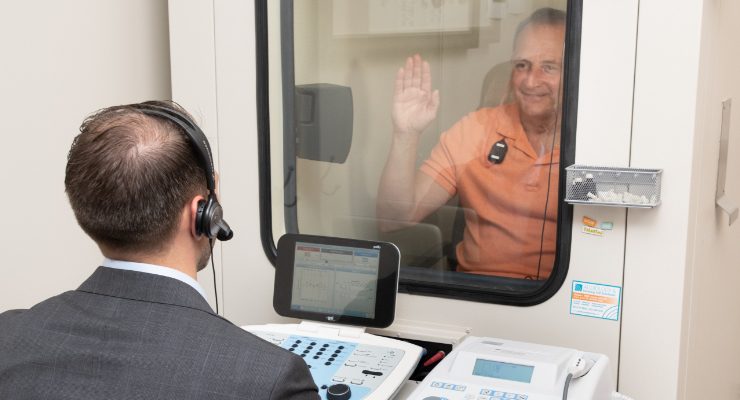
Frank starts every day with fresh-ground coffee. He drives to work and cranks the radio during his 20-minute commute. Cars honk with impatience, and jackhammers roar through a construction zone.
At work, Frank operates backhoes and skid steers, sometimes forgetting to wear his soundproof headphones, before returning home through rush hour traffic. He cuts his grass while listening to music through his earbuds, then falls asleep to the TV.
It seems like a perfectly normal day, but there’s an underlying and dangerous force prevalent throughout Frank’s day. It’s full of noise pollution.
What Do You Mean “Noise Pollution?”
Noise pollution is the noise that disrupts your life’s daily activities. And you’re probably exposed to more than you think.
The American Speech-Language-Hearing Association estimates 30 million Americans are exposed to dangerous noise levels daily. For Frank, that includes his coffee grinder, daily commute, construction equipment, radio, and his lawnmower.
A safe noise level is below 80 decibels. Anything above will cause irreversible damage to the sensitive hair cells in your ears that send sound signals to your brain’s auditory nerve.
Here are the decibels for sounds you likely encounter every day:
- Vacuum: 75 decibels
- Diesel truck: 85 decibels
- Blender or food processor: 80-90 decibels
- Lawnmower: 106 decibels
- Emergency sirens: 120 decibels
- Jackhammer: 130 decibels
So, What’s The Problem?
Noise pollution can cause short- or long-term hearing loss. It can lead to other health problems such as:
- Tinnitus, or ringing in the ears
- Hyperacusis, a painful physical reaction to certain noises
- Sleep deprivation and fatigue
- Depression
Combine these factors, and you have a recipe for hearing problems that can cause poor work performance and limit socializing.
What Can I Do?
First, begin taking note of the sources of noise pollution in your life and make some changes.
Invest in hearing protection like foam or custom earplugs or over-ear headphones. The Occupational Safety and Health Administration requires employers to provide hearing protection for employees that work in environments with a certain noise level, so check in with your supervisor.
Turn down the volume on your radio, television, and especially your earbuds. Earbuds’ proximity increases the risk of noise damage because they sit in your ear canal.
Visit an audiologist to gauge your degree of hearing loss and begin the process of getting hearing aids, if necessary. Most hearing aids filter background noise, especially dangerous noise pollution, so you don’t have to strain to hear.
Don’t wait to protect your hearing. Contact Audiology & Hearing Aid Solutions to learn more about our services. Call 888.473.8702 or visit one of our locations today.



